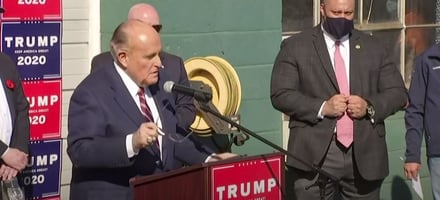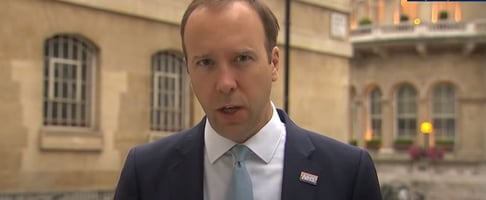The biggest test to an organisation’s reputation is how it handles a crisis.
Every business needs a brilliant spokesperson.
They are the face - and voice - of the entire organisation and are crucial to gaining coverage, bringing the information in press releases to life, and positioning it as a thought leader.
And they are responsible for protecting and enhancing its reputation during a crisis.
But how do you choose the right spokesperson?
It is a question we are often asked. And it is a crucial part of effective media relations and public relations.
Myths about spokespeople
Before we go further, there are a couple of myths to dispel.
The CEO should be the spokesperson
Being a spokesperson is a high-profile job. But it does not mean your CEO should front all your media interviews.
It could be an option that will work well - many CEOs have brilliant communication skills.
But not all of them.
An example we often use during our crisis communication training courses is Tony Hayward. More than a decade after the BP oil spill crisis, its former chief executive is still remembered for public statements like "I'd like my life back."
Another infamous example saw Jeff Fairburn, the then boss of housing firm Persimmon, walk away from the television cameras after refusing to answer questions about his £75m bonus.
This year, Amrapali Gan, the CEO of OnlyFans, was interviewed by The Sunday Times Magazine, and it turned into a public relations disaster. The publication ran the article under the headline 'I met the woman who runs OnlyFans. It didn’t go well'.
Right spokesperson or right spokespeople?
Don't put all your eggs in one basket.
If you only have one spokesperson, who will you put forward for media interviews when they are away or unavailable?
What happens if they leave?
Don't set limits. The best approach is to have a pool of spokespeople from across the entire organisation, who have had recent media training.
Not only does it mean you are more likely to be able to make the most of media opportunities, but it also helps showcase the depth of talent and expertise within your company.
So, who should you look for to become a spokesperson and build this pool of spokespeople for media interviews?
What does a spokesperson do? Well, it is a job with plenty of responsibilities. And finding the right person - or people - needs careful consideration.
There is more to it than the general recommendations you often find in articles on this subject, such as maintaining good eye contact, putting a positive spin on company news, and knowing the organisation's message.
You need someone with the following skills and abilities:
Prepared to answer questions
An obvious one for most spokespeople?
Maybe. But if you've seen an interview with a Government spokesperson recently, you would be forgiven for thinking answering questions from a journalist is an optional extra.
They often seem to answer something different that relates to the key messages they want to get across.
But this evasive approach can leave a spokesperson looking slippery and cowardly. And it implies arrogance.
A good spokesperson understands they are responsible for answering hard questions. And that appearing honest, direct and open will portray the organisation in a positive light.
But it doesn’t mean a spokesperson should just answer the questions. They should still use media training techniques like bridging and signposting to control the conversation.
Keep calm and carry on
And this seamlessly brings us to the importance of composure.
Not all the questions a spokesperson needs to answer will be pleasant. Journalism involves asking awkward questions the public wants to be answered. They will raise issues that can feel uncomfortable.
These questions, often containing loaded language, can feel personal.
A good spokesperson can absorb this pressure during interviews and press conferences, not show frustration and continue to speak with clarity and confidence.
Those listening and watching are more likely to remain sympathetic to a spokesperson who remains composed.
Whereas, when an interview descends into an argument, it becomes memorable for the wrong reasons. And that can damage the company's reputation.
Bring passion to key messages
Passion and enthusiasm are crucial communication characteristics of an effective spokesperson.
People are more likely to believe messages delivered with passion.
It shows you believe what you are discussing. And has the power to turn doubters into believers.
Demonstrating a passion for the subject is compelling and vital for keeping the audience listening and watching.
But don't fall into the trap of telling us how passionate you are. Things like "I'm really excited to announce" and "I am passionate about", are clichéd phrases.
Let the passion come through naturally as Jamie Oliver did in his interview with the Today programme about free school meals.
Human spokesperson (not a talking robot who regurgitates press releases)
Your organisation needs a spokesperson who can express feelings and show emotions.
To connect with the audience and build trust, media interviews must sound like a natural conversation.
It means a spokesperson should use their words to get messages across and avoid corporate speak and jargon, which can make them sound scripted and undermine interviews.
People are put off by a spokesperson who sounds like a corporate talking robot.
Storytelling
Storytelling is a bit of a communications buzzword. But it plays a crucial role in getting that human side across. And helps bring messages to life.
Stories and examples help a spokesperson build connections with viewers, readers and listeners.
But not all stories have the same impact.
People want to hear stories about other people, not company policies, protocols, strategies and organisation goals. They want to know what your announcement means for real people in real-life situations.
Often the most impactful examples, the ones which stimulate emotions and persuade people to give money, take action, support an idea or buy a product, are personal to the spokesperson.
It can include admitting mistakes, sharing what keeps you up at night, and what makes you nervous or excited.
Having a spokesperson willing to share personal stories is a real asset to a company.
Make the complex simple
Another vital media interview skill is the ability to make the complex simple.
This can be challenging if your interviews are about scientific breakthroughs, academic research, technological advancements and healthcare improvements.
But people will switch off if they don't understand what you are saying. Or they could misunderstand your point.
The ability to tell stories will help.
But a spokesperson who can self-edit is also pivotal. Knowing what to leave out can be as important as what you say.
It is sometimes tricky for those working closely on a project. But remember the words of Albert Einstein: “If you can’t explain it simply, you don’t understand it well enough.”
Inclusive language
Continuing with that simplicity theme, you need a spokesperson who uses everyday language.
A media interview is not the place to showcase vocabulary skills. Complicated words may seem impressive. But they don't help people understand your messages.
To put that in perspective, the average reading age of the UK population is nine years old.
So, spokespeople should aim to use the relatable language they would if they were talking to friends or family in a pub or cafe. And keep sentences succinct.
It also means avoiding jargon. Every industry has its jargon and acronyms. We can take them for granted and lose sight of the fact they are meaningless to everyone outside the sector.
When a spokesperson uses jargon in an interview, it can alienate those watching, listening and reading.
Knowledge is power for spokespeople
It should go without saying a spokesperson must understand their subject.
But it is crucial to remember an interview is not an exam, and those closest to events, a new policy, project or product may struggle to know what to leave out.
But knowledge doesn't stop there. Spokespeople must also understand the media training techniques that will help them steer and control an interview and avoid pitfalls.
But an effective spokesperson will go beyond that and know what the media is looking for and how their story feeds into the news package.
This will ensure more of what they say makes the edit. And journalists will regard them as an expert spokesperson they would like to speak to again.
Prepared to prepare
Like other forms of public speaking, spokespeople must prepare for media interviews. These opportunities can't be winged.
Are your company spokespeople willing to put a bit of graft in to ensure they know the messages they need to get across? Are they willing to spend time trying to anticipate questions and other issues which could be brought into the interview?
But there is a balancing act here.
Too much preparation can make a spokesperson appear over-rehearsed, and blunt the much-needed human element.
Swotting up over huge briefing documents can also make spokespeople more nervous by building up the interview in their minds. It can lead to them feeling muddled and unable to recall information.
Available
Your company can have the best media spokespeople. But if they are unavailable when you need them, there is little point.
There is no value in a spokesperson unwilling to leave meetings or events, no matter how important, to face the media.
Journalists and media outlets work to tight deadlines. If a spokesperson does not have the flexibility to meet their time frames, the opportunity to get your organisation’s story across will disappear.
What about crisis communications?
Who is the best spokesperson in this situation?
The traits and spokesperson skills we have identified still apply.
But there is an added emphasis on being able to demonstrate compassion, empathy, authority, and honesty and acknowledge uncertainty and concern.
A crisis spokesperson must be believable to effectively connect with the audience.
They must also be calm and have clarity of thought.
And this brings us to a similar question we began with - should your CEO be your crisis spokesperson?
It is a dilemma. And it is something we explored during a masterclass for members of The Media Team Academy.
Sean Ryan, one of our expert tutors, said: "Do you choose the most senior person - the chief executive or a senior director who is accountable for the crisis? Or do you choose the person who connects best with the audience?
“I would say the only exception to choosing the person who connects best is when the CEO or senior director are being accused publicly of doing something wrong. In that situation, it may be best for them to get out there and defend themselves.
“But in other situations, it does seem better to choose the best spokesperson.”
Media First are media and communications training specialists with more than 35 years of experience. We have a team of trainers, each with decades of experience working as journalists, presenters, communications coaches and media trainers.
Click here to find out more about our media training and crisis communication courses.




